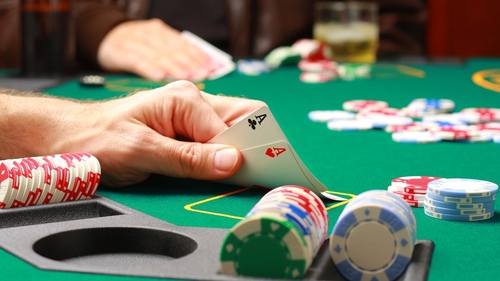In the realm of card games that meld skill, psychology, and strategy, the poker match stands as an enduring emblem of intellectual rivalry. With its roots tracing back centuries, poker has evolved from smoky saloons to prestigious tournaments, maintaining its status as a cultural phenomenon that marries chance and cunning. The stage is set, the chips are stacked, and players embark on a journey of calculated risk and exhilarating suspense.
The Intricacies of Poker
Poker, a game of myriad variations, centers on a universal foundation: the interplay of chance and skill. The mechanics may vary, but the core essence involves players wagering on the perceived value of their hand, trying to decipher if they have the upper hand or if their opponents are merely bluffing. Each card dealt and each chip pushed into the center of the table shape the narrative of the match.
Strategic Brilliance
Skill and strategy are the driving forces behind a riveting poker match. While luck is a companion, the decisions players make based on their hand, community cards, and opponents' behaviors are pivotal. Expert poker players are scholars of probability, mentally calculating the odds of drawing specific cards and deciding whether to chase the elusive flush or straight.
Strategic mastery extends to bluffing, an art form in poker. Proficient bluffers understand when to present a façade of strength with a weak hand, causing opponents to fold superior hands, or when to feign vulnerability to extract chips from more confident adversaries. The delicate balance between deception and reveal dictates the ebb and flow of the game.
Unmasking Psychology
In the theater of poker, psychology is as vital as the cards themselves. The poker face – an inscrutable expression concealing emotions – is a central prop, yet it barely scratches the surface of psychological depth. Every bet, raise, and call is a brushstroke on the canvas of the players' minds, creating intricate patterns of strategy and counter-strategy.
The psychology of poker transcends mere visage; it dives into the abyss of behavioral cues. Betting patterns, the rhythm of decisions, and the subconscious gestures called "tells" provide glimpses into opponents' intentions. Players leverage this information to sculpt narratives that can manipulate others into misjudgments, enhancing the psychological dance.
The Adrenaline of High Stakes
The allure of poker matches often lies in the stakes, both financial and emotional. The potential for substantial winnings or losses fuels an intoxicating blend of excitement and apprehension. As bets escalate and chip stacks dwindle or burgeon, the drama intensifies. Each choice to fold, call, raise, or go all-in amplifies the heartbeat of the game, creating a crescendo that captivates both participants and observers.
Conclusion
A best poker play is a realm of calculated risks and strategic brilliance, a theater where players unveil their intellect and unravel their opponents' intentions. Rooted in tradition yet perpetually evolving, poker's charm lies in its interplay of chance and skill, its strategic orchestration, and the unspoken psychological symphony that defines each hand. Whether in the dim glow of a backroom table or under the spotlight of a grand tournament, the drama of a poker match continues to spellbind those who appreciate its intricate blend of intellect and instinct.
